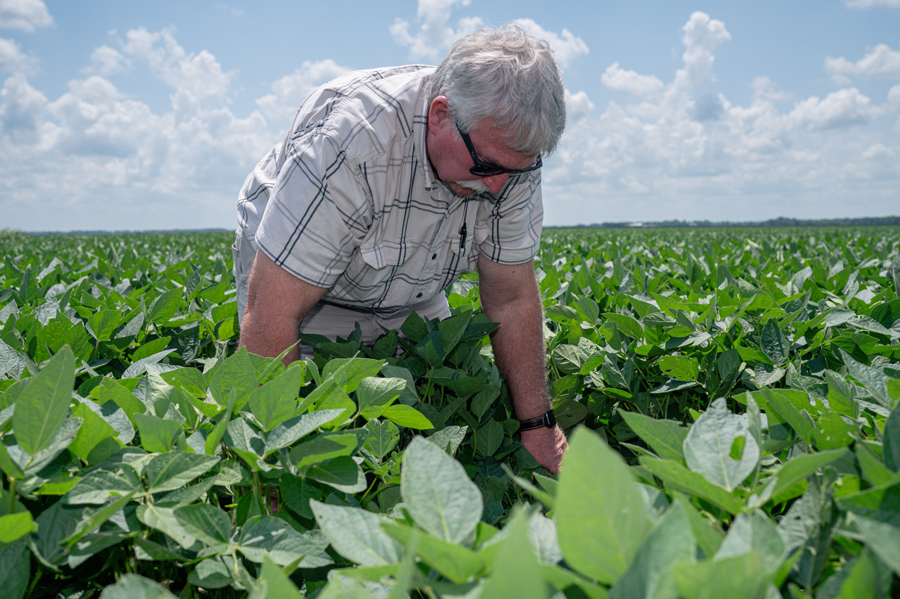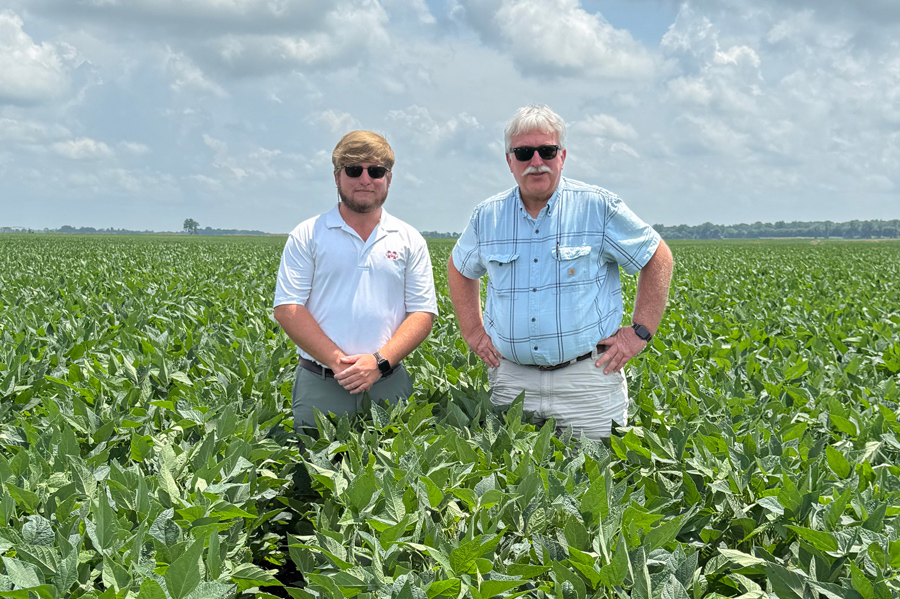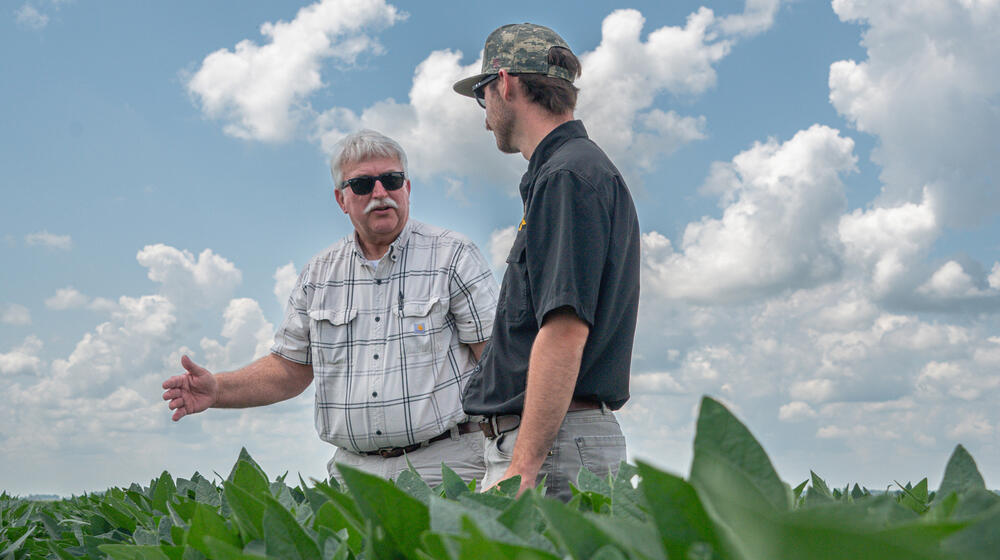Extension Matters
Volume 11 Number 2
Starting Early
Bolivar County row crop producer, MSU researchers benefit from variety trial research
Story by Nathan Gregory | Photos by Kevin Hudson
Allendale Planting Company in the Mississippi Delta town of Shelby has flourished under Bill O’Neal’s watchful eye for more than a quarter century, but he will be the first to say you can never have too much experience to learn something new.
One of the wells he has consistently drawn knowledge from has been right outside his office door. Each year, O’Neal sets aside a sliver of the 9,400-acre row crop farm for Mississippi State University Extension Service faculty and staff, who plant variety trials at 35–40 farms across the state each year. They evaluate how different row crop varieties perform in various conditions and soils.
After harvesting the trial plots, MSU Extension row crop specialists and researchers share the data they gather with growers to help them choose the best varieties for their locations and the most effective management strategies. O’Neal is a regular participant in the MSU soybean variety trial program and has grown that crop as well as corn, cotton, and rice since his arrival at Allendale in 1998, at which time he co-managed the farm. He now oversees all the farm’s day-to-day operations.
“The Extension Service has helped me a great deal, not only in the soybean trial program but other crops as well and its irrigation program,” he says. “I think we’re better irrigators because we have adopted some of the things that we’ve learned through Extension of how to do better and be more efficient.”

One of the most important lessons his experience has reinforced: Plant early. Storms once dumped rainwater on one of the variety plot plantings right after it was planted—just in time to compromise the quality of its stand. The MSU Extension soybean specialist and agricultural agent in Bolivar County at the time called for a replant, but instead of digging up the first trial plot, they left it alone and planted the new one right beside it a month later.
“When we cut both plots, we kept the data on both and compared the two,” O’Neal explains. “The main average on the earlier planted trial was thin, but it was still 15 bushels over the later planted one that had an optimum stand. For a number of years, we’ve strived to try to plant early, but that showed us how important that early planting window is.”
When Dr. Justin Calhoun began work as MSU Extension soybean specialist earlier this year, one of his first tasks was combing through archived variety trial data from other growers in the program and from plots grown at the four Mississippi Agricultural and Forestry Experiment Station research farms.
“If you look historically at some of the trial results, you’ll see Bill holds some record yields,” Calhoun emphasizes. “The trials on his farm show us the yield potential of the best performing varieties, and that comes with a combination of good management practices and early planting dates. He is always one of the first ones that wants to go.”
That enthusiasm for agriculture was passed down to O’Neal’s son, Paul, who is a doctoral student researching stand loss, seeding rates, and planting dates in soybeans under Calhoun.

“Paul came to me as a teenager and said, ‘Dad, I don’t think I want to make my living in farming, but I want to make things better for farmers.’ And now, he’s following through on his dream,” the elder O’Neal recalls. “He makes me proud.”
While agriculture today is a different animal from what it was when O’Neal began farming in the 1970s—rising production costs and middling market prices for commodities are major challenges—he has no immediate plans to take a step back.
“I’m blessed to be doing what I’m doing. As long as my health will allow, I’ll do what I’m doing because I love it so much, and it’s just something about growing a crop that is very fulfilling to me,” he said. “One reason Extension is so important is because they help us become more efficient in everything we do and improve our position. They’ve got our interests at heart. They do their job to help us do a better job, and I appreciate what they do.”

